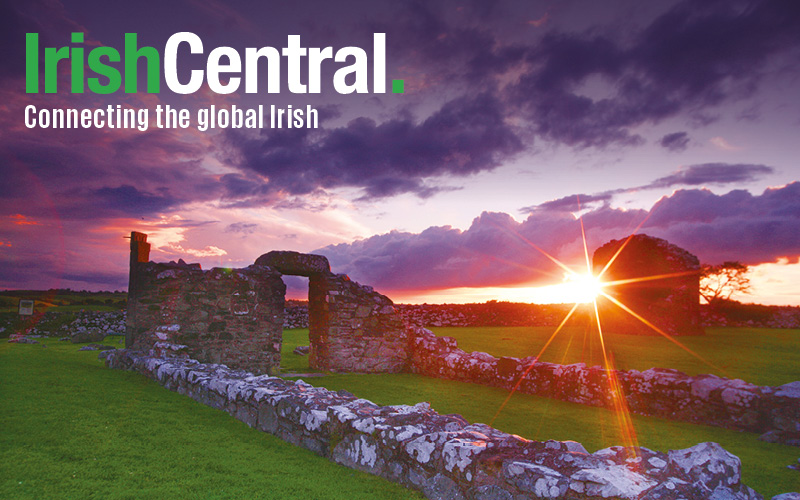| Archbishop Timothy Dolan (AP Photo/Louis Lanzano) |
“Could Cardinal Dolan Become Pope?”
The question jumped out at me from the CBS News website and made me chuckle for several reasons.
First of all, New York Archbishop Timothy Dolan will not even get his red hat until February 18. Yet here they are speculating that the guy might become Pope.
And then there’s the prospect of an Irish American pope in Rome. That made me chuckle even more mightily.
Still, it was quite a week for Irish American power. First, there were reports that First Lady Michelle Obama once griped about the power wielded by just three Irish Catholic clans in Chicago -- the Daley, Madigan and Hynes families.
Then there was the elevation of Dolan, as well as Bronx native and fellow Irish American Edwin O’Brien, to cardinal.
That means for over 170 years now an Irish American has ruled the biggest, most visible diocese in North America. And all but one, in that time, has made it to Rome as a cardinal.
This got me thinking about what Senator Daniel Patrick Moynihan wrote in his book Beyond the Melting Pot back in the 1960s.
“The Irish didn’t know what to do with power once they got it. …[T]he very parochialism and bureaucracy that enabled them to succeed in local politics prevented them from doing much else.
______________________
Read more:
More news stories related to the Vatican from IrishCentral
Obama got the love from Irish audiences he couldn't get in America - VIDEO
Catholics bashing gays, again - Pope says they 'threaten the future of humanity'
_____________________
“In all these 60 or 70 years in which they could have done almost anything they wanted in politics, they did very little. Of all those candidates and all those campaigns, what remains?”
What remains, of course, is power. Still. To this day. In 2012.
Moynihan’s point seems to be that after the Irish scrapped and battled their way from the bottom of the social heap to the corridors of power in Boston, New York, Philly and Chicago, they seemed content simply to be powerful and influential.
And one is tempted to ask who can blame them?
It’s particularly interesting to read Moynihan’s lines in the first month of 2012, decades after the Irish finally had to begin sharing power with other ethnic groups, as they moved out to the suburbs and began inter-marrying in great numbers.
Oh sure, it’s hard to find a Hibernian trace of Tammany Hall these days, even if two of the most likely candidates for New York City mayor in 2013 are named Kelly and Quinn.
And the rank-and-file of the unions are nearly as diverse as the city, though the cops and teachers and firefighters have union leaders named Lynch and Cassidy and Mulgrew.
Yes, the historically Irish Transit Workers union leader is named John Samuelson. But even he has a son named Jack Duggan Samuelson, thanks to the old Irish ballad.
Moynihan and many others have suggested the Irish could have done more with the power they accumulated. Others still suggest that had the Irish shared their power they might have made a more just society.
In an important new book to be published in March, entitled The Irish Way, Professor James R. Barrett writes about the Irish in America: “Their most common impulse was to exclude: to bar more recent immigrants, women and people of color from jobs and unions, to discriminate against women and minorities, and to fight more radical groups in the labor movement.”
If this is not excusable, is it at least understandable? Given what the Irish went through?
There are, of course, plenty of harsh things to say about the Irish influence on the American Catholic Church.
But imagine if you had told “Dagger” John Hughes that the Irish would rule Catholic New York for nearly 200 years? It would have sent his head spinning.
Yes, they should face the reality of the changing times and the changing faces in the pews.
Yes, the church was a force social mobility, but at a high price when it came to conformity and sexuality.
But maybe for this week, just this week, we should acknowledge this amazing fete. That the Irish in
America obtained and maintain influence, not for its own sake, or in the name of making the world a
better place.
The amazing thing is that it happened in the first place.
Could they have done more? Of course.
Let’s not forget the biggest miracle -- that they did it at all.
(Contact “Sidewalks” at [email protected] or facebook.com/tomdeignan)




Comments